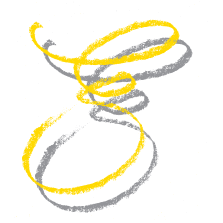I don’t suppose that anyone who wasn’t in Saffron Hall, the splendid new concert venue in Saffron Walden, will believe me, but this concert performance of Die Meistersinger was a triumph. I hardly believe it myself, but, despite all its shortcomings, it succeeded overwhelmingly in conveying the spirit of Wagner’s protean masterpiece. The St Albans Symphony Orchestra, composed of a mixture of professionals and amateurs, was conducted by Michael Thorne, mostly in a rough and ready way that more or less held things together, but without nuance or balance – the unreliable brass were far too dominant passim; and he rarely secured playing under mezzo forte, exceptions being the magical close of Act 2 and the prelude to Act 3. Yet I minded the imprecisions, the occasional descent into chaos, and so on, less than the sophisticated but misconceived performances one often hears in the big opera houses.
The singers were an uneven crew, but the best were very good indeed. In the opening scene it seemed that the passionate and intense Eva of Inga-Britt Andersson, the Magdalene of Anna Burford, and above all the superlative David of Adam Tunnicliffe, a major artist, might be the heroes of the occasion – and they were the performers who acted most, which helped. All of them would grace any account of the work in the world. But then most of the others were at least adequate, and the Sachs of Andrew Greenan was distinguished, untiring – but he should have hammered more in Act 2. The Pogner of Richard Wiegold and the Kotner of Paul Carey Jones were on this level too. Jonathan Finney’s Walther didn’t actually let the performance down, but he was effortful, strained – most Walthers are. The one near-disaster was the Beckmesser of Julian Tovey, who seemed scarcely to know the part, and often was inaudible. He redeemed himself up to a point by singing his abortive prize song rather well (i.e. badly). The other masters were uniformly excellent. The chorus was enthusiastic but a bit underpowered.
If only the occasion had been better advertised, it might have had the size of audience it deserved. Saffron Opera Group is a new organization worthy of all the support it can get – but if it took a few more steps to make itself better known, that would be more likely.
MICHAEL TANNER (for Opera Magazine)
